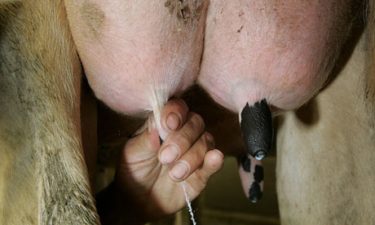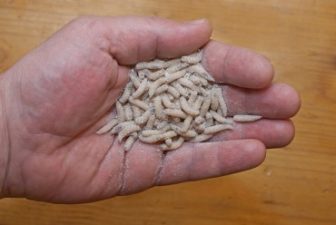 Greenpeace raises the alarm about the presence of GM crops in Egypt despite an announcement by the Egyptian government that GM seeds had been discarded
Greenpeace raises the alarm about the presence of GM crops in Egypt despite an announcement by the Egyptian government that GM seeds had been discarded
Back in 2012, the Ministry of Agriculture in Egypt made the bold statement that no Genetically Modified (GM) crops were to be planted in Egypt. Although this may have been a relief to various campaigners and the average Egyptian concerned about their food, it now emerges that things are not as straight forward as they first appeared. According to Greenpeace a new report has found that Egypt is actually Africa’s third largest country to commercialise a GM crop. So where does that leave Egyptians?
“This is a situation of grave concern, our government is assuring us that they are taking precautions to protect the Egyptian people, environment, and economy, and according to this report what was promised was not fulfilled,” says Ahmed El Droubi, Sustainable Agriculture campaigner for Greenpeace.
The International Service for the Acquisition of Agri-Biotech Applications, released its annual Global Status of Commercialized Biotech/GM Crops report and found that Egypt planted 1,000 hectares of GM maize in 2012.
However, the Minister of Agriculture announced that the only licensed shipment of a GM crop to enter Egypt in 2012, a 40 ton shipment of MON 810 of GM maize, was to be withheld and executed by his Ministry.
Something isn’t adding up and Greenpeace say they want answers. They want to know why there are inconsistencies in the findings of the report and statements made by Egypt’s Ministry of Agriculture.
“The Egyptian people are entitled to know what is planted on our land and what we are eating!,” added Ahmed El Droubi . “The risks of GMOs and the threats they pose are unquestionable, this already banned activity by no means should continue. We demand the Egyptian government puts in place clear biosafety laws banning GMOs.”
The recent GM development comes at a particularly precarious time in Egypt as food poverty is on the rise. According to a recent government survey, 86% of Egyptians say that their income is insufficient to cover their monthly food, clothes and shelter bill. This was a rise from 74% in 2011. Households are adopting radical strategies to cope with the widening gap which include cutting out meals or reducing the portion sizes.
In the past, campaigners of Bozoor Balady have also worked hard to promote the importance of local seed diversity and the value of native seeds and crops.
For more on food issue in Egypt:
Egyptian Seed Bombing Campaign to Hit Cairo and Alexandria
Egypt’s Frightening Food Poverty On The Rise
Zooba: Egyptian Street Food Goes Inside
Egypt Struggle to Supply Wheat to Hungry Country
Photo of young man selling vegetables in Aswan via ChameleonsEye / Shutterstock.com




Way cool! Some very valid points! I appreciate you penning this write-up plus the rest of the site is also very good.
Here is my site – 參展 (Lakeisha)
There is lot of land in our continent that need to be used correctly to feed everyone. Egypt has more water to irrigate, we must stop blaming everything and start doing things right.
The only reason there are food shortages in Egypt is because the male-dominated population keeps growing. But if all woman were given the legally protected right to decide if and when to birth their children the vast majority would choose to birth no more than 1, 2 or 3, in which case the population would stabilize and there would be plenty of food for everyone.